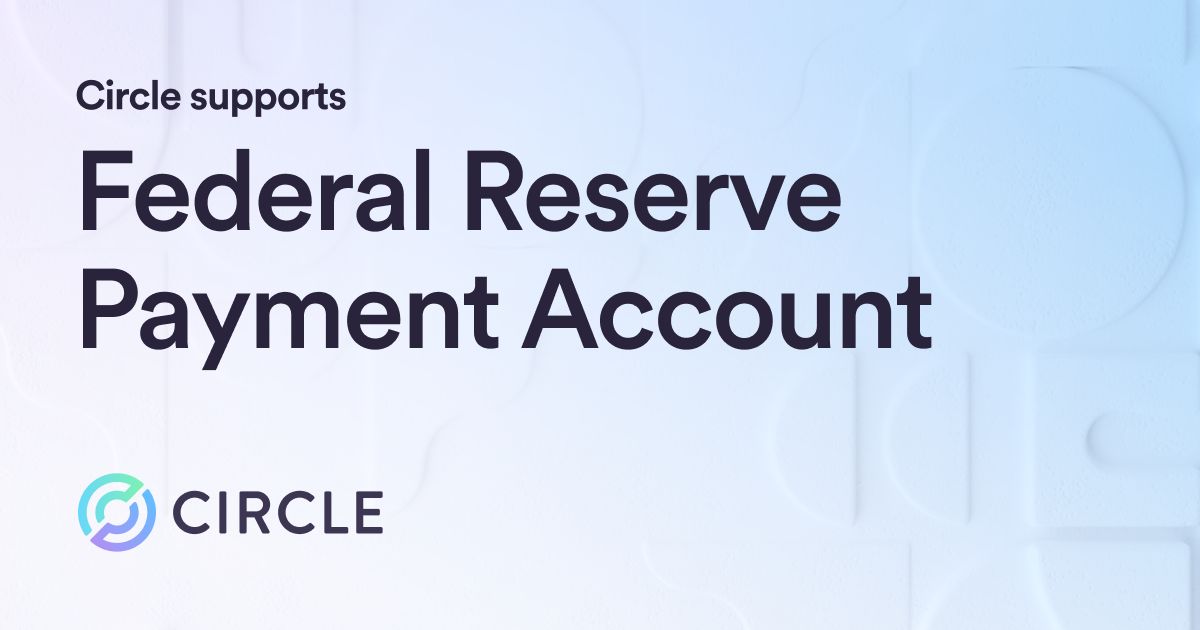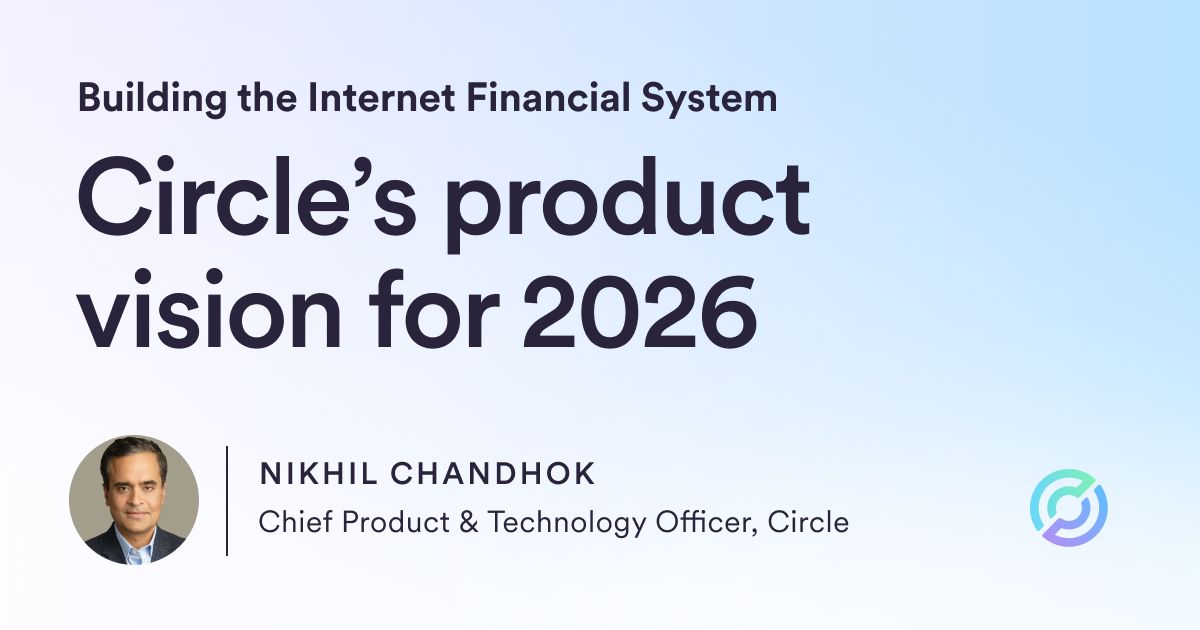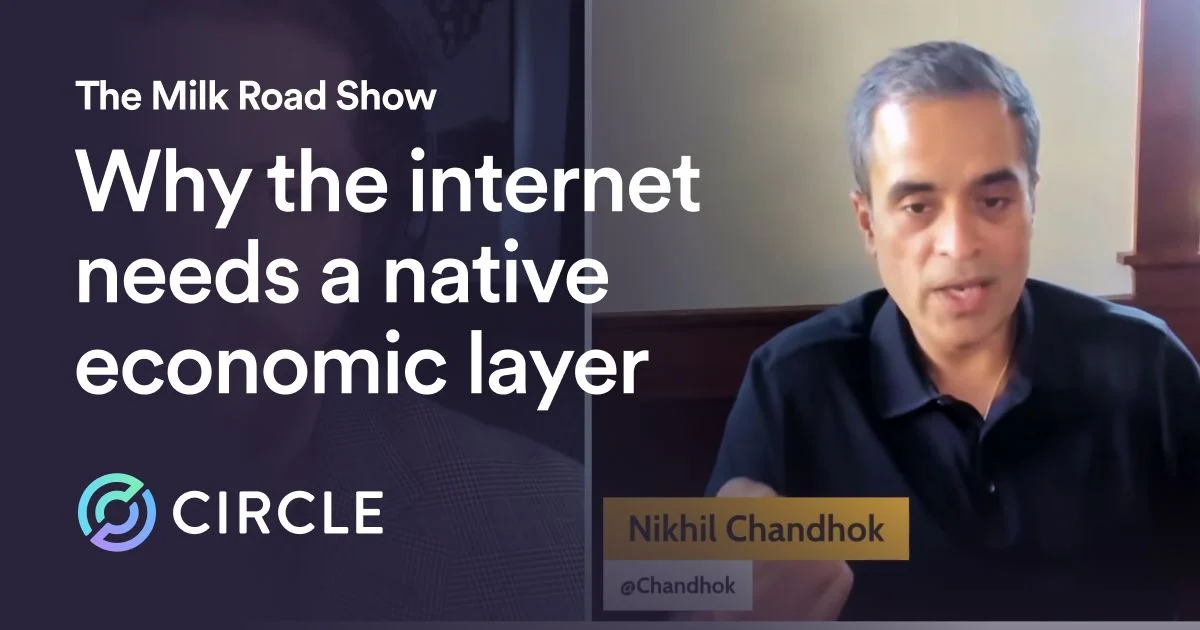Circle supports MAS introducing a regulatory framework that guarantees each single-currency pegged stablecoin is backed by high quality liquid assets.

Singapore plays a critical role in overseeing responsible innovation as one of the world’s leading financial hubs and continues to build on this reputation with the release of its proposed regulatory approach for stablecoin-related activities. Following our in-principle approval by the Monetary Authority of Singapore (MAS), Circle is more committed than ever to supporting the development of stablecoins as a regulated medium of exchange within the global financial system. Circle has prioritized responsible financial services innovation and constructive engagement with public authorities and regulators around the world, and we believe MAS’ new framework for stablecoin-related activities serves as an important and timely reflection of Singapore’s prudent regulatory approach.
Given the growing use case of stablecoins, USD Coin (USDC) and other forms of ‘tokenized cash’ require a high level of regulatory scrutiny to guarantee value stability, as well as to ensure the protection of users and intermediaries. While Circle is already a Major Payments Institution (MPI) licensed in principle by MAS, we support efforts to introduce a strong regulatory framework that guarantees each single-currency pegged stablecoin (SCS) is backed one-for-one by cash and high quality liquid assets.
Circle's Main Points
Circle applauds MAS’ recognition of global SCS and the transformative economic potential that single-currency pegged stablecoins offer under a regulated ecosystem.
- Circle urges MAS to avoid prohibiting the use of SCS that are already effectively regulated outside of the city-state, or issuing regulations that supersede regulation in the jurisdiction of SCS denomination. As Singaporean citizens interact with non-Singaporean Dollar SCS issued in other jurisdictions, calibrating the scope of MAS requirements for off-shore SCS to be used within the city-state will be crucial to a comprehensive digital assets framework.
- Widening MAS’ oversight too much could create definitional and jurisdictional issues that conflict with regulations for the use of SCS in markets such as the United States and European Union, as well as disincentivize Singaporian registration.
- Circle is confident that the proposal's provisions for thorough auditing reports on reserves and adequate prudential controls can address the financial stability risks around stablecoins and service providers, and should arm MAS with the data it needs to make determinations on the systemic significance of tokenized cash in Singapore.
We appreciate MAS’ efforts to secure equivalent regulatory outcomes while taking a progressive approach to regulating SCS issuers.
- While the licensing framework for non-bank SCS issuers is appropriate and adequate to ensure financial stability, we believe there is sufficient differentiation within the tokenized SCS category to merit different treatment of tokenized bank liabilities versus SCS fully backed by high-quality reserves, or ‘tokenized cash.’
- Tokenized cash consists of a stablecoin fully reserved by cash and cash equivalents, such as short-term government obligations of the highest quality and liquidity. Tokenized cash SCS such as Circle’s USDC carry lower market risk, lower credit risk, and higher liquidity relative to ‘tokenized deposits’ and accordingly should be treated as less risky.
Circle believes that MAS takes an appropriate and balanced treatment of redemption to ensure timely redemption of stablecoins. However, we note that there is an important balance between timely redemption and effective compliance that merits greater clarity around the definition of ‘holder’ and appropriate assignment of redemption obligations.
- Circle believes that a critical component of a redemption scheme that promotes financial stability and consumer protection should be the alignment of requirements with the issuer or service provider that onboards and conducts compliance due diligence. Such a tiered system would include reasonable requirements on both service providers offering SCS transmission — as well as issuers — to ensure adequate legal protections and timely redemption for SCS holders.
Circle appreciates efforts by MAS to protect the smooth functioning of payment systems available to Singaporean users, and suggests MAS consult with industry leaders as part of a comprehensive process to develop systemic reporting guidelines.
- We encourage regulators and MAS to take advantage of blockchain analytics capabilities, a proven tool for authorities to monitor distributed ledger technology networks for stability and soundness.
- To that effect, we encourage MAS to ensure reporting obligations are not ultimately placed on underlying blockchain or DeFi protocols, including validators that are unable to self-report, for example, because they lack identifiable operators or are located abroad; are frequently designed to function without a central authority; may be made up of hundreds of pseudonymous node operators; and/or are geographically distributed beyond national borders.
Circle’s full responses are available here.




